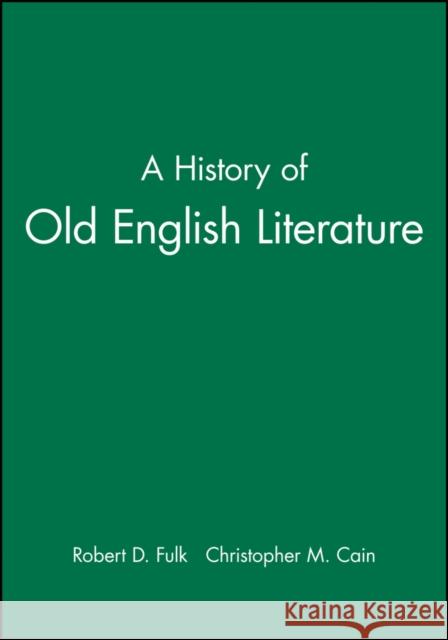A History of Old English Literature » książka
topmenu
A History of Old English Literature
ISBN-13: 9781405121811 / Angielski / Miękka / 2004 / 360 str.
This timely introduction to Old English literature focuses on the production and reception of Old English texts, and on their relation to Anglo-Saxon history and culture.
- Introduces Old English texts and considers their relation to Anglo-Saxon culture.
- Responds to renewed emphasis on historical and cultural contexts in the field of medieval studies.
- Treats virtually the entire range of textual types preserved in Old English.
- Considers the production, reception and uses of Old English texts.
- Integrates the Anglo-Latin backgrounds crucial to understanding Old English literature.
- Offers very extensive bibliographical guidance.
- Demonstrates that Anglo-Saxon studies is uniquely placed to contribute to current literary debates.











